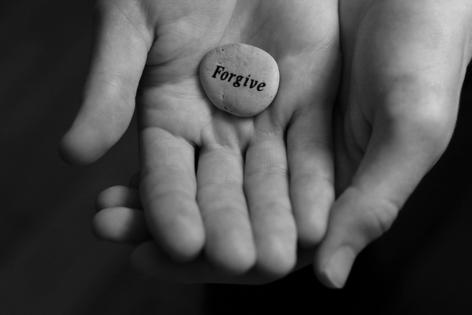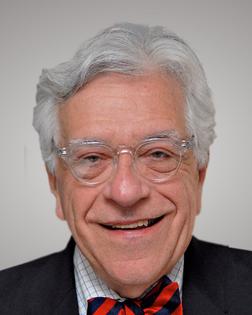The God Squad: Unconditional forgiveness
“Forgiveness is the fragrance the violet sheds on the heel that has crushed it.” – Mark Twain
I have been deeply touched by the flood of mail from Catholic readers who have appreciated that a rabbi could have some spiritually helpful insights on the new papacy of Leo IV. Here, a Protestant reader, R, shares her soul’s excitement:
Dear Rabbi Gelman, I love your column! I'm on vacation writing to you from Rome now.
I have noticed from the citizens here how excited and happy everyone is about what we encounter about the "Americana" Pope Leo. We also visited the tomb of Pope Francis at the Basilica di Santa Maria Maggiore where people were honoring his memory and saw so much love for him. I am a Christian (protestant). The most important qualities I would like to see in Pope Leo are unconditional love and acceptance. Those are qualities I'd love to see in everyone and qualities I'd like to grow in me too. That is truly following what Jesus Christ taught. "The greatest of these is love." Thank you for the love you show in your column. – R
A: Thanks, dear R, for your spiritual generosity. The topic of unconditional love and acceptance pairs with unconditional forgiveness as one of the highest Christian virtues. It was the topic of long discussions between Tommy and me.
Father Tom strongly believed that we are commanded to offer unconditional forgiveness to any sinner, including an unrepentant sinner. Following the teaching of Judaism, I disagreed. I do believe we are obligated to forgive anyone who comes to us in sincere repentance, but we are not required to forgive a person who does not regret their sin and does not repent for it. Otherwise, we would be required to forgive Hitler and every other mass murderer. Which is, in my view, not only impossible but also immoral. I believe forgiveness must be linked to repentance. Tommy could not agree. He believed that Christianity taught that forgiveness is a gift not a reward. If we ask God to forgive us for sins we have not acknowledged or for which we have not repented, how can we withhold that same grace from others? I understand that Judaism’s beliefs may lead us to forgive too little. I fear that Christianity’s beliefs may lead us to forgive too much.
Occasionally there are saints who can bridge the gap between merited forgiveness and unconditional forgiveness. The following words were written on a scrap of paper by a Jewish inmate at the liberation of Ravensbrück Concentration Camp in Germany at the end of WWII,
“Lord, remember not only the men of good will, but also those of ill will. But do not remember all the suffering they have inflicted upon us. Remember rather the fruits we have brought, thanks to this suffering: our comradeship, our loyalty, our humility, the courage, the generosity, the greatness of heart that has grown out of this. And when they come to judgment, let all the fruits we have borne be their forgiveness.”
Here is a Buddhist story that also tries to bridge the gap between forgiveness and repentance:
Two friends were walking through the desert. During some point of the journey, they had an argument, and one friend slapped the other one in the face. The one who got slapped was hurt, but without saying anything, he wrote in the sand: Today my best friend slapped me in the face. They kept on walking, until they found an oasis, where they decided to take a bath. The one who had been slapped got stuck in the mire and started drowning, but his friend saved him. After he recovered from the near drowning, he wrote on a stone: Today my best friend saved my life. The friend, who had slapped and saved his best friend, asked him, "After I hurt you, you wrote in the sand, and now, you write on a stone, why?" The other friend replied: "When someone hurts us, we should write it down in sand, where the winds of forgiveness can erase it away, but when someone does something good for us, we must engrave it in stone where no wind can ever erase it."
Learn to write your hurts in the sand and to carve your blessings in stone.”
I believe this is one of the great spiritual challenges of faith. It is the next big topic for the God Squad. Must we unconditionally forgive everyone, or must we only forgive the sincerely repentant? What do you think?
(Send ALL QUESTIONS AND COMMENTS to The God Squad via email at godsquadquestion@aol.com. Rabbi Gellman is the author of several books, including “Religion for Dummies,” co-written with Fr. Tom Hartman. Also, the new God Squad podcast is now available.)
©2025 The God Squad. Distributed by Tribune Content Agency, LLC.
(c) 2025 THE GOD SQUAD DISTRIBUTED BY TRIBUNE MEDIA SERVICES, INC.












Comments